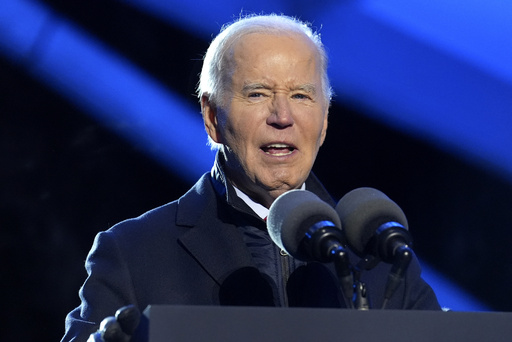WASHINGTON — President Joe Biden is grappling with a significant decision concerning the potential issuance of broad preemptive pardons meant to shield his advisers and allies from possible retaliatory actions by Donald Trump. This deliberation raises a fundamental question: Should Biden adhere to the institutional standards he has championed throughout his career, or should he exercise presidential powers in a novel manner?
At present, the discussions are primarily being conducted among White House legal teams. However, Biden has reportedly broached the subject with senior aides, according to two sources familiar with the discussions who requested anonymity due to the sensitive nature of the topic. As of now, no final decisions have been reached, and there is a possibility that Biden may choose not to act at all.
Typically, pardons are granted to individuals accused of particular crimes, often after they have already been found guilty. However, Biden’s team is contemplating the opportunity to grant pardons to individuals who may not even have faced investigation, let alone formal charges. The president could decide to provide blanket pardons for specific individuals targeted by Trump and his allies or could issue pardons to groups of people in a manner similar to those extended to individuals convicted of federal marijuana offenses or those affected by the historical “don’t ask, don’t tell” military policy.
Regardless of the approach taken, Biden would be employing the office of the presidency in an unprecedented way. Concerns exist that Trump and his supporters, who have mentioned creating enemies lists and pursuing retribution, might initiate investigations that could damage the reputations and finances of those affected, even if those investigations do not lead to formal prosecutions.
The conversation around pardons is not entirely hypothetical; Biden has already granted a significant pardon to his son, Hunter, who has faced legal consequences related to tax and gun law violations. Biden justified this decision by asserting that the prosecution was politically motivated.
White House Press Secretary Karine Jean-Pierre has indicated that Biden intends to issue additional pardons before his term concludes, although she has refrained from detailing the specific process. She has pointed to “changing factors” that influenced the president’s decision to pardon his son, despite earlier assurances that he would not do so. Jean-Pierre noted that Republicans continue to pursue investigations into Hunter Biden over various alleged offenses, which could serve as a rationale for extending further pardons to Biden’s aides and other supporters.
Recently, Congressman Jim Clyburn, one of Biden’s close allies in Congress, urged the president to consider forgiving his son Hunter and suggested that he should also consider pardoning those being targeted by Trump. Clyburn asserted that he was firm in his discussions about Hunter’s pardon but also advocated for broader protection for others under threat.
The scrutiny surrounding Trump includes investigations led by Special Counsel Jack Smith into his attempts to undermine the outcome of the 2020 election and allegations that he mishandled classified documents. Additionally, Liz Cheney, a Republican who served as vice chair of the committee examining the January 6 Capitol riots, and Dr. Anthony Fauci, who was pivotal in the COVID-19 response, have also faced ire from Trump.
Clyburn humorously suggested granting the same immunity to Smith, Cheney, and Fauci that the Supreme Court has recognized for the president himself, emphasizing the protection of those simply executing their duties. Some individuals publicly mentioned as possible recipients of presidential pardons express divergent views about whether they would even welcome such an action.
Former House Speaker Nancy Pelosi has shown support for the President’s decision regarding Hunter but has remained quiet regarding speculation about further pardons. On the other hand, Representative Adam Schiff, a prominent figure of Trump’s first impeachment, has criticized the idea of pardoning Biden’s allies, arguing that the judicial system is robust enough to withstand Trump’s potential threats. He urged Biden to refrain from preemptive pardons, labeling them as unnecessary.
Meanwhile, Representative Jamie Raskin, who served as a lead manager during Trump’s second impeachment, noted that Congress members are already protected under the Constitution while fulfilling their legislative roles, and that figures such as former Joint Chiefs Chairman Mark Milley and former White House Chief of Staff John Kelly would similarly have First Amendment protections. Raskin underscored that many are questioning why individuals who did nothing wrong should be subjected to criminal investigations and prosecutions. He contended that with Trump pledging to pardon those implicated in the January 6th riots, it is reasonable for President Biden to contemplate utilizing the pardon power to safeguard individuals from unjust legal pursuits. House Democratic Leader Hakeem Jeffries mentioned he has not engaged in conversations regarding preemptive pardons for current or former Congressional members.




